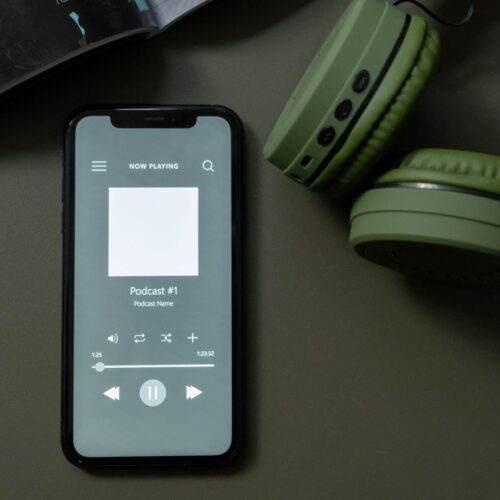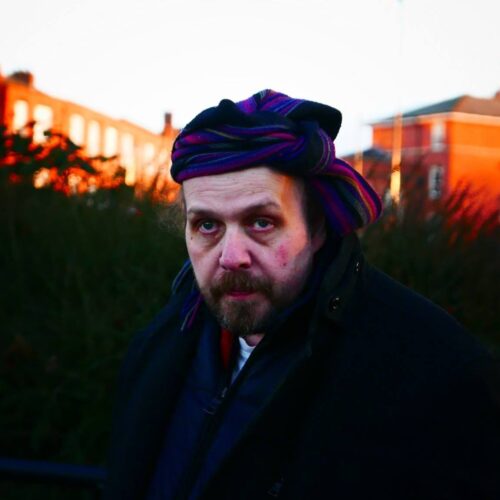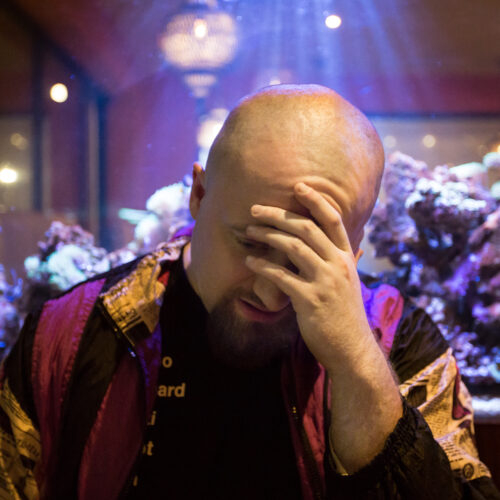
Arty Fraudsters
This is a post from the weareoca.com archive. Information contained within it may now be out of date.
 The ‘Great Gatsby’ was a fraud. All his friends and acquaintances knew it and yet their admiration of the environment in which prosperity and high living, jazz, underworld criminality and deception was an essential component remained undiminished. It is perhaps this deception that surprises us, especially when we discover that a writer did not write the book we have bought, or the piece of music we are listening to was not written by the composer named on the CD. The art world has been both shocked and delighted to know that ‘experts’ have been hoodwinked into confirming provenance to some notable art forgeries. A few years ago a Dorset pottery teacher managed to fake Bernard Leach vases and persuade not only Christies, but also Bonhams and GalerieBesson to pay thousands for them as genuine. It is widely known that the often hugely premature ‘biographies’ of many star footballers, politicians and other short-lived celebrities are professionally written by proficient ghost writers whose names do not always appear anywhere in the book’s credits. But Robert Graves was a ghostwriter too. Most of us harbor a love-hate relationship with the concept, admiring the skill and audacity that goes into the making of these art-works, whilst being scandalized by the effrontery that we see as insulting to the real artists, the ones whose devotion to perfecting techniques and skillfully interpreting real inspiration could be made to count for very little by these forgeries. But if the customers are there waiting in the market place for Gatsby’s bootlegged liquor, or Robert Driessen’s Giacometti forgeries or another Katie Price novel, why should not the market find ways to offer it? Ghost writing paid domestic bills for Mozartwho would provide extra arias for the operas of other tired composers and even – as in the tragic case of the Requiem – for distressed rich gentlemen who could not compose. Unfortunately for the hopeful deceivers historical detectives have discovered the true authorship, but in modern times that has not always been so easy. William Walton promised not to tell anyone which of the jazzy parts ofFaçade Constant Lambert had written. How much of McCartney’s Liverpool Oratorio was the product of his own compositional skill? Perhaps it was much like my own experience working from a cassette tape of Rod McKuen’s whistling to produce his Cello Concerto for him. Yet it is known that George Gershwin had very limited abilities when writing down pieces he could play superlatively, and he is in the good company of composers like Liszt and Faure who were fortunate to have student admirers to do the complex work of orchestrating many of their compositions. Among the few artists who are less able to deceive must be the live musical performers, for if they are unable to play the violin or piano, or to sing adequately, an audience will soon be retreating to the box office with demands for returned money. Unless one is a Florence Foster-Jenkins who was clearly unaware of her inability to sing yet delighted in making a public exhibition of it, there is nowhere for a performer to hide any flaws. A tenor performing a taxing operatic role in Milan’s La Scala theatre was delighted to hear cries of ‘encore’ from the audience, and dutifully repeated the aria, only to have yet again cries of ‘encore’. He sang the aria a third and fourth time, and wearily asked them ‘how many more times?’ ‘Until you get it right’ they shouted. The Italians are like that!
The ‘Great Gatsby’ was a fraud. All his friends and acquaintances knew it and yet their admiration of the environment in which prosperity and high living, jazz, underworld criminality and deception was an essential component remained undiminished. It is perhaps this deception that surprises us, especially when we discover that a writer did not write the book we have bought, or the piece of music we are listening to was not written by the composer named on the CD. The art world has been both shocked and delighted to know that ‘experts’ have been hoodwinked into confirming provenance to some notable art forgeries. A few years ago a Dorset pottery teacher managed to fake Bernard Leach vases and persuade not only Christies, but also Bonhams and GalerieBesson to pay thousands for them as genuine. It is widely known that the often hugely premature ‘biographies’ of many star footballers, politicians and other short-lived celebrities are professionally written by proficient ghost writers whose names do not always appear anywhere in the book’s credits. But Robert Graves was a ghostwriter too. Most of us harbor a love-hate relationship with the concept, admiring the skill and audacity that goes into the making of these art-works, whilst being scandalized by the effrontery that we see as insulting to the real artists, the ones whose devotion to perfecting techniques and skillfully interpreting real inspiration could be made to count for very little by these forgeries. But if the customers are there waiting in the market place for Gatsby’s bootlegged liquor, or Robert Driessen’s Giacometti forgeries or another Katie Price novel, why should not the market find ways to offer it? Ghost writing paid domestic bills for Mozartwho would provide extra arias for the operas of other tired composers and even – as in the tragic case of the Requiem – for distressed rich gentlemen who could not compose. Unfortunately for the hopeful deceivers historical detectives have discovered the true authorship, but in modern times that has not always been so easy. William Walton promised not to tell anyone which of the jazzy parts ofFaçade Constant Lambert had written. How much of McCartney’s Liverpool Oratorio was the product of his own compositional skill? Perhaps it was much like my own experience working from a cassette tape of Rod McKuen’s whistling to produce his Cello Concerto for him. Yet it is known that George Gershwin had very limited abilities when writing down pieces he could play superlatively, and he is in the good company of composers like Liszt and Faure who were fortunate to have student admirers to do the complex work of orchestrating many of their compositions. Among the few artists who are less able to deceive must be the live musical performers, for if they are unable to play the violin or piano, or to sing adequately, an audience will soon be retreating to the box office with demands for returned money. Unless one is a Florence Foster-Jenkins who was clearly unaware of her inability to sing yet delighted in making a public exhibition of it, there is nowhere for a performer to hide any flaws. A tenor performing a taxing operatic role in Milan’s La Scala theatre was delighted to hear cries of ‘encore’ from the audience, and dutifully repeated the aria, only to have yet again cries of ‘encore’. He sang the aria a third and fourth time, and wearily asked them ‘how many more times?’ ‘Until you get it right’ they shouted. The Italians are like that!





